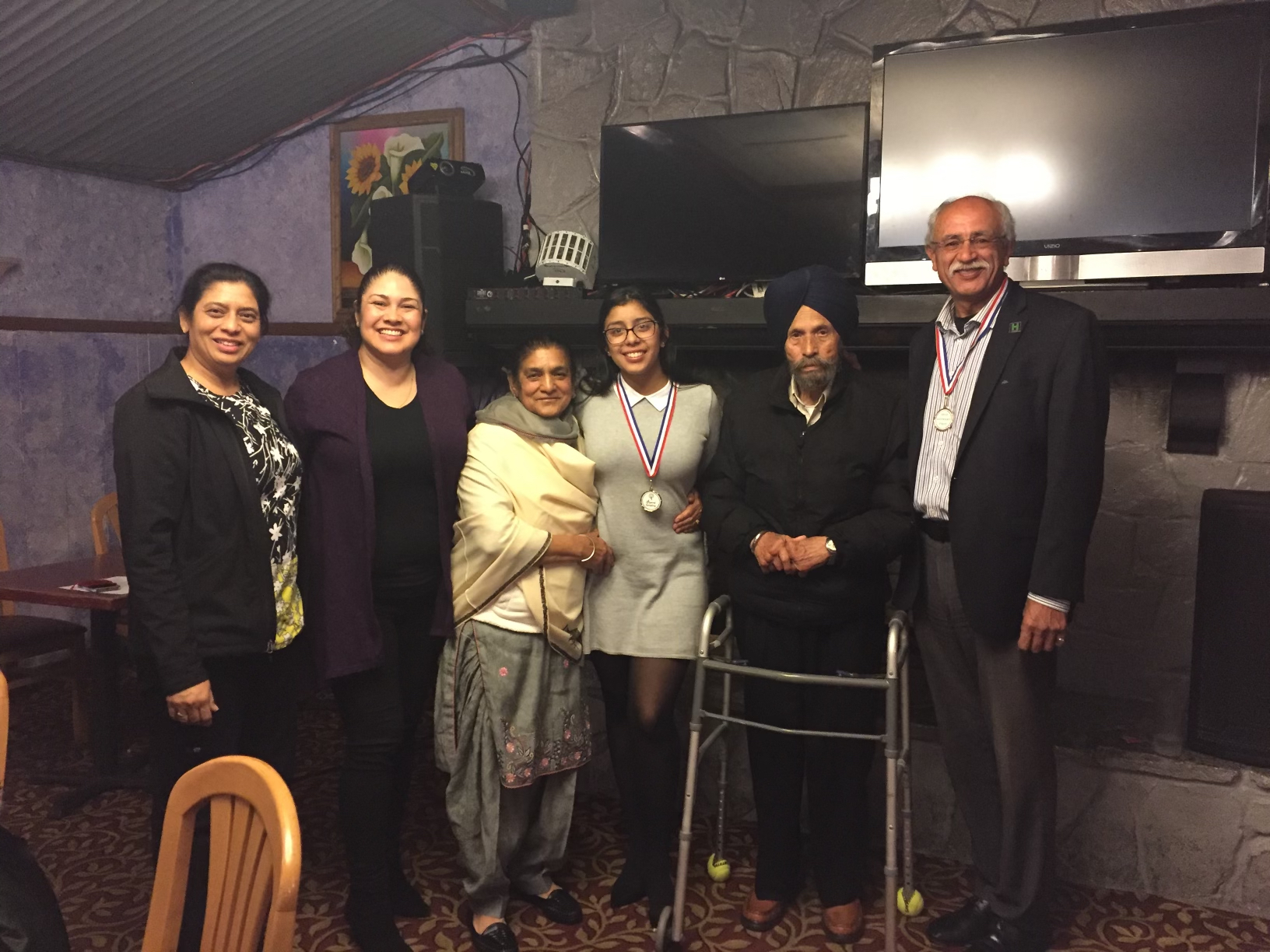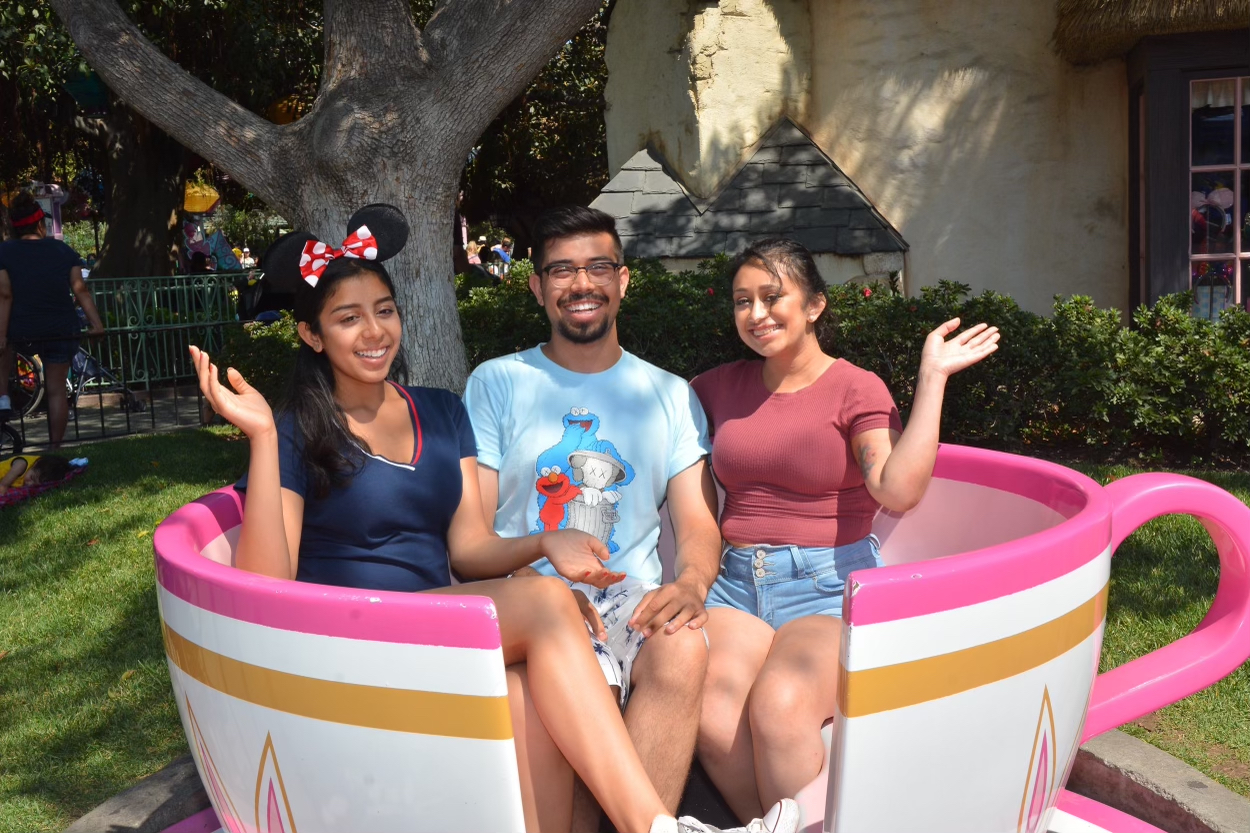My name is Harnoor Gill (she/her/hers) and I am 18 years old. I am also an incoming student at UC Berkeley. Hayward, California feels like home, but honestly, a part of me still belongs in Punjab, India. My parents moved to the U.S. over 30 years ago, but I used to go there often as a toddler. Much of my life is based on Punjabi values, so I also call it home.

This year, I helped organize the first annual Hayward Youth Conference, focusing on issues that affect Hayward youth. Hayward is such a diverse area and young people want to know what’s going on in their city as well as how they can help. As Hayward youth commissioners, we want to spread awareness to the next generation on how youth can be more aware and how they can push for changes they want to see. We came up with the ideas and designed the entire agenda. We were really able to put our voices into the conference and it was up to us what we wanted to do. We had funding from the City of Hayward and additional support from the Hayward Unified School District, the Hayward Public Library, and Hayward Area and Recreation District.
Youth Leadership Institute (yli) partnered with us to offer a workshop on practicing anti-racist leadership. Many of the issues we’re seeing here in Hayward are rooted in leadership that is explicitly racist, or bystander to racist agendas. April Hoogasian of yli led the session, and went over the wheel of privilege as well as different practices we can use in our daily lives and in leadership positions to push for an anti-racist agenda.
The participants’ reaction to April’s session was really beautiful to see. There is so much that we don’t think about, like how much of a privilege it is to be neurotypical. There are certain communities that have been made invisible, that our historical narratives haven’t included or have intentionally hidden. That was really the “aha” moment for everyone in the room – like, “Wow, this is where I fall on the wheel, this is where I’m privileged and where I’m not, and this is the kind of change I want to see.” In a school that’s primarily low income and very diverse racially, ethnically, and religiously, creating that awareness of intersectionality is so important. This training really made students reflect for the first time in their lives on themselves, on their communities and what they want to do in their futures.
This kind of work is especially important to me because of my own intersectionality. I’m Punjabi, a woman of color, a polyglot, a second-generation immigrant. It’s critical to me that the people in power who are supposed to stand up for me, actually do. That they have the same values that I do.

We can start by trying to change the generation that’s already in power, but youth are the leaders of the future and it’s key that we influence them to think about what they can do today to make sure that certain events in history, such as the murder of George Floyd and many other Black individuals, never happen again.
Throughout history, we have put so much trust into older generations – it’s on them to fix what’s wrong. They’re the ones in power. They’re the presidents, vice presidents, council members, and much more. And we just keep putting them in that position where they’re the only ones who make change. We don’t understand that the biggest changes that have been made throughout history were not made by people in these positions. The revolutionaries are not the council members. They are not politicians. They are always the citizens.
I feel like today’s youth have more of a platform – and more power – now than we have ever had. Having 20,000 followers on social media is no joke. If that many people are willing to listen to you, you need to use that platform in the best way possible. Sometimes we don’t even know who our senators or representatives are, but we know our friends, we know social media and we know hashtags. Youth can use that in a way that nobody else can. We understand each other, we understand intersectionality, we understand diverse backgrounds and perspectives more than any other generation. I have so much hope for what we can do, more than I do for anyone else.
After yli’s workshop, I’ve been doing a lot more research on different things – psychology, homelessness – and it’s been changing the direction I want to go, not just with my work through the Hayward Youth Commission, but in my life’s work and who I want to serve. I am tired of constantly seeing reactionary responses to important issues. Instead, I want youth to be proactive about the changes we need.
Overall, I think the conference was a success. Students came out of it more aware of themselves and their surroundings, and more interested in helping their communities. We also gave students a chance to voice their concerns and understand how they can create solutions in their own communities. They don’t need to wait until they become a city council member 20 years down the line – they can do what they want to do now. That’s what was so special about this youth-led conference. It demonstrated that youth have power.

Our term as commissioners this year is ending, but we’re heading into the next term with a lot of inspiration because of the positive response we’ve had. I personally would love to focus on issues that have arisen from COVID-19 and continue digging in on anti-racist leadership. During the past year and a half, we’ve seen so many new narratives come to light. We have to keep paying attention to these narratives if we want this movement to be sustainable. It’s not a one-time thing. It’s something that you need to hold close to your heart and keep going back to. I keep going back to the wheel of privilege, because it matters and it will always matter. Intersectionality isn’t a topic to focus on for only a 30-minute session – you do it your entire lifetime.
In college, I’m intending to major in computer science and perhaps data science as well. I’m excited to gain experience in the field and learn more about the work through my participation in the Google Computer Science Summer Institute (CSSI) this summer. I’m very open and curious, but I know that, no matter what I do, I want to be in a place where I can help people, and in a work environment that has the same values that I do.
I hope the young people who follow me don’t ever wait to make change. If you have something to say, say it now – don’t wait for someone else to say it for you. People are always willing to listen. And you have a platform that is super powerful.
yli’s Training and Consulting Services (TCS) provides workshops in Practicing Anti-Racist Leadership and many other social justice topics to youth and adults across the nation. To learn more about yli’s TCS, please visit our website at https://yli.org/training-consulting-services/ or contact April Hoogasian at [email protected]
